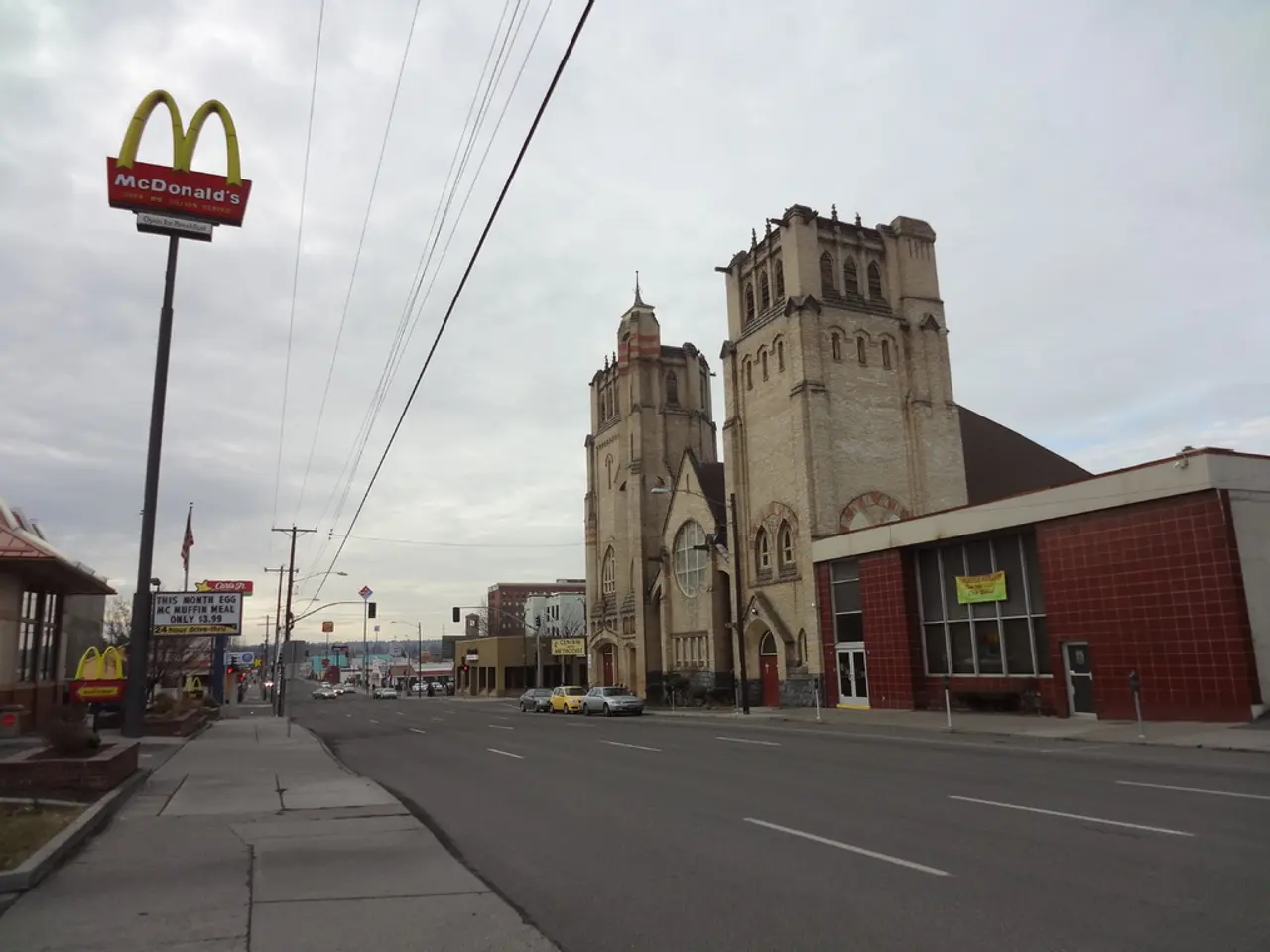Development plan in Mayfair faces potential setbacks due to net zero objectives
In the heart of London, a significant decision is looming for the planning committee. On the 2nd of April, they will meet to decide on two applications: the demolition and rebuild of an eight-storey building in Mayfair, proposed by Foster & Partners, and the retrofit of a former Fenwick department store in the same neighbourhood [1].
Westminster's commitment to sustainability and heritage preservation is evident in its "retrofit-first" policy. This policy requires developers to explore the option of retrofitting existing buildings before proceeding with demolition and redevelopment. The aim is to reduce carbon emissions by upgrading rather than replacing buildings [2].
However, the proposed redevelopment of 18-19 Saville Row, another project by Foster & Partners, faces opposition. Westminster's planning officers have deemed the Savile Row scheme not justified in terms of sustainability or the transition to a low carbon circular economy. The officers' report states that the scheme does not prioritize the retention, refitting, and refurbishment of existing buildings [1].
If approved, developers in Westminster could face carbon offsetting payments up to nine times higher than current levels, given the scheme's lack of alignment with circular economy principles and sustainable design [1].
Meanwhile, the former Fenwick department store in Mayfair, the subject of a proposed retrofit by Foster & Partners, closed last month. This project, however, is recommended for approval [1].
Westminster council is also running a public consultation on strengthening its planning policies on retrofit to discourage new build schemes. The city's ultimate goal is to become a 'retrofit-first' city [1].
The exact carbon offsetting payments or rates for such projects in Westminster are not detailed in the provided information, but they likely follow standard local government mechanisms linked to carbon impact assessments and sustainability certifications aligned with the city's Environmental SPD and Building Safety Act regulations [1][2].
For precise figures or current carbon offset payment schedules, one may need to consult Westminster City Council's planning policy documents or sustainability guidance directly, or contact their planning department for the most current details.
[1] Source: Westminster City Council Planning Policy Documents [2] Source: Westminster's Environmental SPD (Supplementary Planning Document, 2024) and Building Safety Act regulations
- The Mayfair retrofit project proposed by Foster & Partners for a former Fenwick department store aligns with Westminster's "retrofit-first" policy, which prioritizes upgrading existing buildings to reduce carbon emissions.
- Sustainability concerns have halted the approval of the Savile Row scheme by Foster & Partners, as it fails to meet the city's low carbon circular economy criteria and doesn't prioritize retaining, refitting, and refurbishing existing buildings.
- If approved, developers in Westminster may face carbon offsetting payments significantly higher than current levels, due to projects not adhering to circular economy principles and sustainable design.
- Westminster council is considering strengthening planning policies on retrofit to discourage new build schemes in favor of environmentally sustainable and historic preservation practices.




